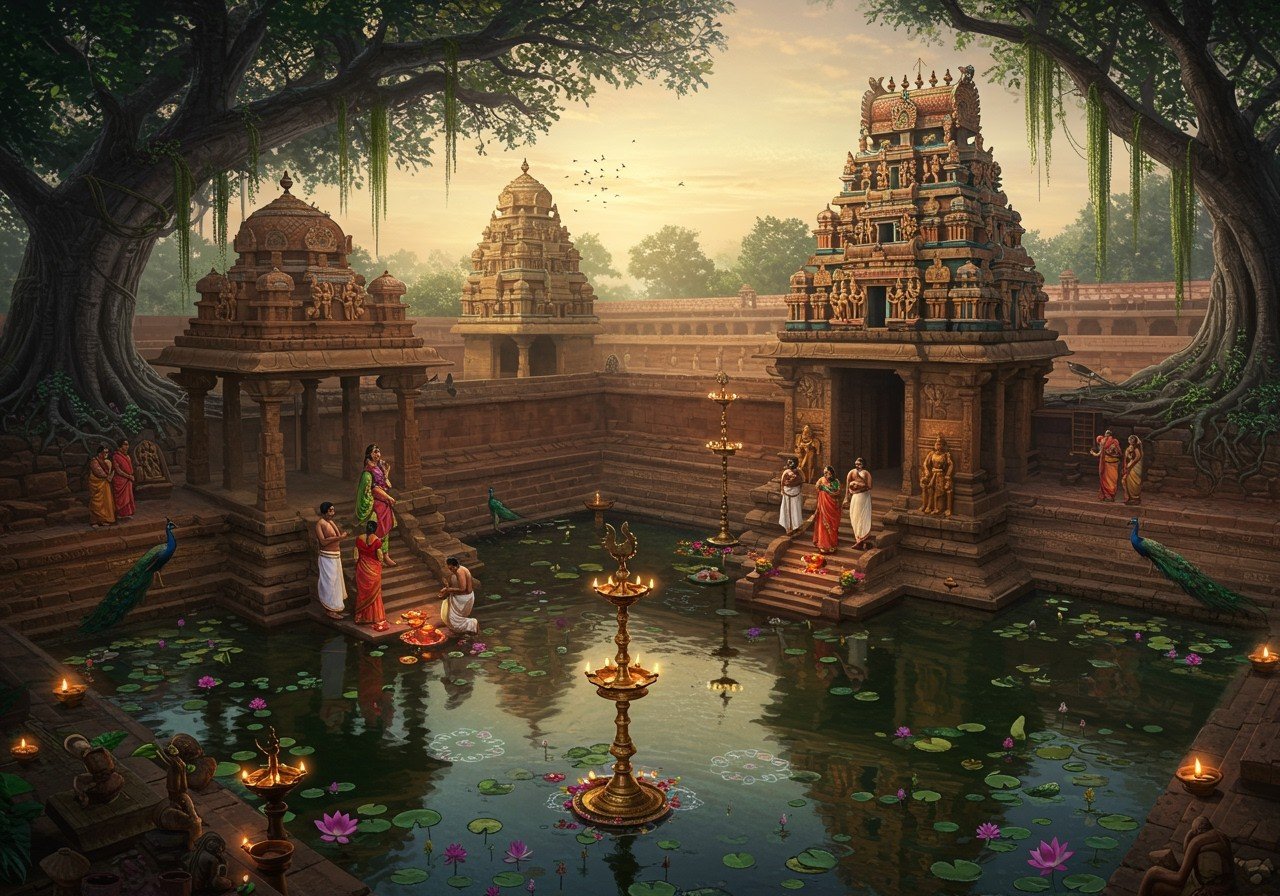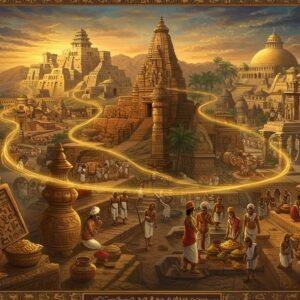
South India is a land of ancient wonders, profound spirituality, and architectural marvels. Its rich religious history has shaped its cultural landscape significantly, influencing everything from art and architecture to daily life and community spirit. This blog delves into the fascinating histories of Hinduism and Christianity in South India, exploring their impact on society and highlighting key religious sites.
Hinduism in South India: A Legacy of Devotion
Hinduism’s roots in South India trace back to the early Dravidian civilization, with Tamil Sangam literature referencing numerous Hindu deities. Dynasties like the Cholas, Cheras, and Pandyas significantly contributed to the spread and development of Hinduism in the region, leaving behind a legacy that continues to inspire millions today.
Here are some key aspects of Hinduism in South India:
- Architectural Marvels: South Indian temples are renowned for their intricate carvings, towering gopurams, and detailed sculptures. Temples like the Brihadeeswarar Temple in Thanjavur (completed in 1010 CE) and the Meenakshi Amman Temple in Madurai, stand as testaments to the architectural prowess of the ancient South Indian kingdoms. These temples aren’t just places of worship; they are symbols of artistic and engineering excellence.
- Temple Rituals and Festivals: Vibrant festivals such as Pongal, a harvest festival, and Navaratri, a nine-night celebration of the Divine Mother, are integral to South Indian Hinduism. These festivals involve elaborate rituals, traditional music, dance, and feasting, fostering a strong sense of community and reinforcing cultural bonds.
- Contributions of Saints and Philosophers: South India has been home to influential saints and philosophers like Ramanuja and Adi Shankaracharya. These figures have profoundly shaped Hindu thought and continue to be revered for their wisdom and spiritual insights. Their teachings have had a lasting impact on the philosophical and theological landscape of Hinduism.
Christianity in South India: A Tapestry of Traditions
Christianity arrived in South India with St. Thomas the Apostle in 52 AD, establishing early Christian communities, particularly in Kerala. The arrival of European colonial powers, including the Portuguese, Dutch, and British, further shaped the development of Christianity in the region.
Here are some key aspects of Christianity in South India:
- Prominent Churches: Historic churches like St. Francis Church in Kochi (built in 1503) and the Santa Cruz Basilica in Kochi are notable for their architectural styles and historical significance. They stand as reminders of the long history of Christianity in the region and the interplay of different cultural influences.
- Christian Missionaries: Christian missionaries played a significant role in education and social reforms in South India. They established schools, hospitals, and other institutions that contributed to the development of the region’s social fabric.
- Christian Festivals: Christmas and Easter are important festivals celebrated by Christians in South India. These celebrations often blend local traditions with Christian practices, creating unique cultural expressions.
The Church of South India: A Symbol of Unity
The Church of South India (CSI), formed in 1947, united various denominations, including Anglican, Methodist, Congregational, Presbyterian, and Reformed churches. This union represents a significant step towards ecumenism and promotes unity among diverse Christian communities in South India.
Here are some key aspects of the Church of South India:
- Social Welfare Contributions: CSI has made substantial contributions to education, healthcare, and disaster relief efforts in South India. Their work demonstrates a commitment to social justice and community development.
- Notable Churches: St. George’s Cathedral in Chennai and Holy Trinity Cathedral in Mumbai are notable CSI churches known for their unique architecture and historical significance. These churches serve as centers of worship and community life.
- Interfaith Dialogue: CSI has actively participated in interfaith dialogue, promoting communal harmony and understanding between different religious communities in South India. This engagement fosters peaceful coexistence and mutual respect.
Poojn.in: Your Gateway to South Indian Religious and Cultural Goods
Poojn.in, India’s leading online store for cultural goods and services, offers a wide range of products to support your exploration and practice of South Indian religious traditions. We provide authentic puja items, traditional brass and copperware, sacred items for festivals, and detailed information about South Indian deities, rituals, and traditions.
Explore our collection of:
Visit poojn.in today to discover more and enrich your spiritual journey.


